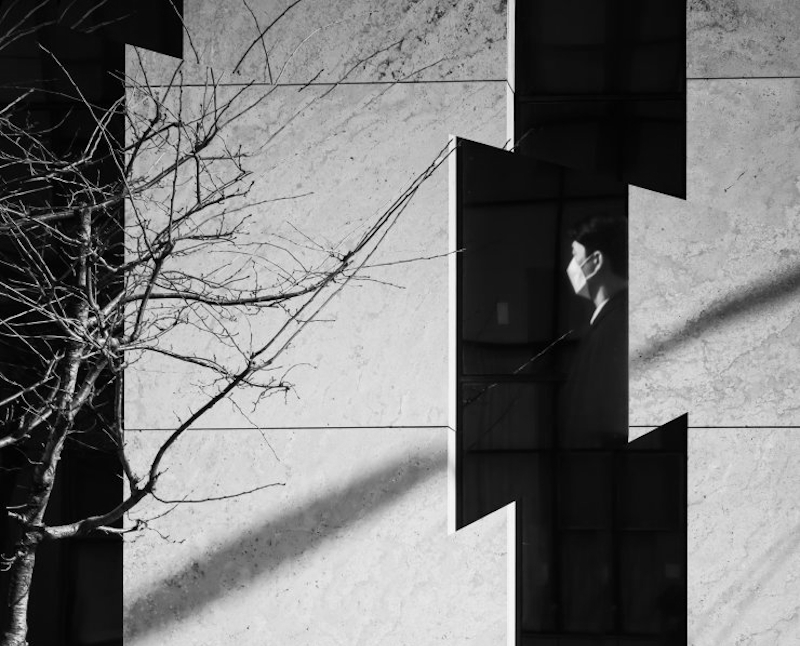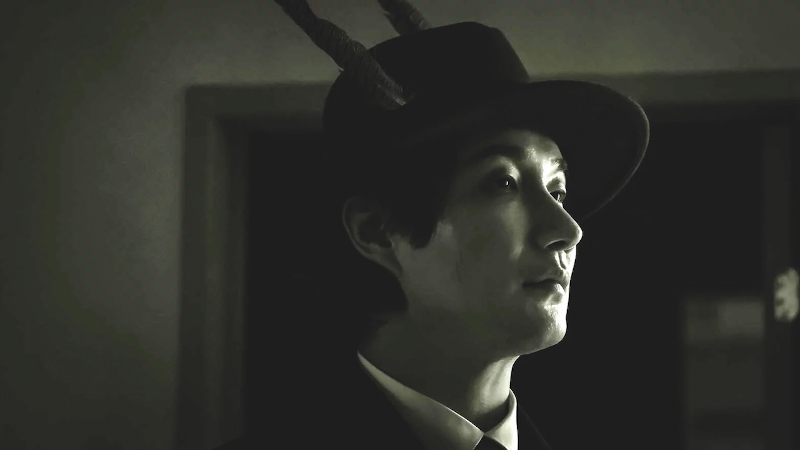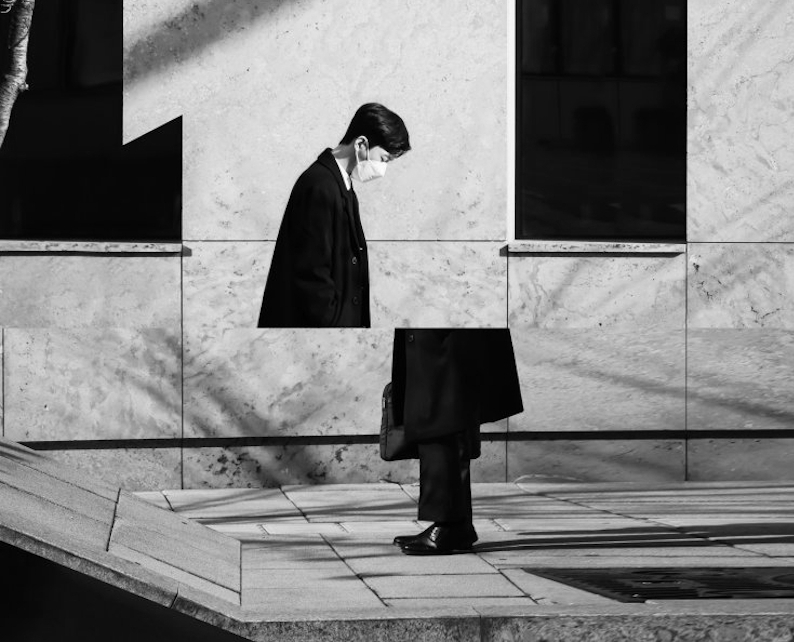Director – Yoon Eun-Kyung – 2023 – South Korea – LKFF Cert. 12 – 90m
*****
In a black & white, futuristic Seoul, a tenant who sublets his rental apartment to prevent his eviction finds out that this approach has its drawbacks – from LKFF, the London Korean Film Festival 2024 which runsin cinemas from Friday, November 1st to Wednesday, November 13th
An alluring image turns out to be merely an image on a wall, an artifice rather than the paradise we at first assume it to be. This is an image many filmmakers have used to open their movies and, depending on what they’ve seen over the years, it will conjure different films for different viewers. For this viewer, it conjures what I consider one of the funniest films of recent decades, Quick Change (Howard Franklin, Bill Murray, 1990) where the image is revealed as a tawdry New York subway train ad above a clown who will shortly proceed to rob a bank.
The Tenants may not be a comedy, but it shares with that film a sense of urban malaise, a feeling of being trapped in a grim metropolis where everything about the place conspires to prevent the protagonists leaving.
The protagonist here is Shin-dong (Kim Dea-geon), who we first meet in his modest apartment in a future or parallel Seoul where mobile telephony has combined with holographic projection so that to call or be called by someone produces their lifelike 3D moving image within range of the mobile phone for the duration of the call. This is presented without any explanation, and may momentarily throw the viewer while s/he works out what’s going on.

Shin-dong has a landlord, who appears as a small child (I briefly considered that this might not be his true age and that this was an avatar, but he does indeed appear to be a small child, speaking to her tenants on behalf of his ruthless, well-off landlady mother who we never see). He also has a best mate who functions in the film like a Greek chorus turned confidant doling out advice, or (if you prefer a more filmic analogy) the Jiminy Cricket conscience figure from Disney’s Pinocchio (1941).
When his child landlord explains he’s giving his tenant the perfect opportunity to move out and find somewhere better since, Shin-dong is somewhat horrified, beset as he is with US-style medical bills, he is in no financial position to upscale. His best mate offers a solution under the WolWolse scheme whereby tenants can sublet parts of their property, which thanks to complex human rights laws will prevent their landlords from evicting them.

He gets a rapid response from a man in a hat sporting two plumes (Heo Dong-won from Squid Game, TV series, 2021; The Gangster, the Cop and the Devil, Lee Won-tae, 2019; Beasts Clawing at Straws, Kim Yong-hoon, 2020; accompanied by what looks like his teenage daughter but, bizarrely, is his wife (Park So-hyon). She never speaks but smiles a lot, which is thoroughly disconcerting. They are newlyweds and are keen to rent his bathroom. So our tenant signs up his subtenants. Now he has to perform his daily ablutions elsewhere, finding himself queueing with numerous co-workers at the restrooms of the office building where he works who are presumably in a similar situation to himself.
His daily commute is peppered with tantalising holographic images of aspirational alternate city Sphere 2, presented as less cramped or polluted than the city he knows, and following news on the company notice board abut forthcoming jobs there with residence provided, he finds himself with an offer of one such job. Alas, his subtenants have in the interim sublet the ceiling space to a woman from the underclass, who doesn’t want to move out…
Although there are scenes of the hapless hero’s workplace recalling that of the opening of The Matrix (Larry & Andy Wachowski, 1999), and shots of elevated rail shuttles recalling the visual effects cityscapes of 2046 (Wong Kar-wai, 2004), this mostly takes place in the main protagonist’s apartment or near the public bench near the building in which it is situated. There are further nods to influences as diverse as Franz Kafka’s novel The Trial, wherein no-one knows why anything is happening or where events are going, and the cramped half-height mezzanine of Being John Malkovich (Spike Jonze, 1999) which functions as a major model for the idea of the ceiling space.

Director Yoon distances himself from all these influences (if, indeed, they’re not just references in the mind of this cinephile) by shooting the whole thing in black and white – or rather, shooting it in colour then draining all the colour out to leave it as back and white, a curious decision which reduces the range of certain scenes to a grey palette where different shades have a tendency to blur together. Nevertheless, even as the black and white aesthetic differentiates the film from much else, it turns it into a Korean riff on the equally odd Eraserhead (David Lynch, 1977).
As a guess of where South Korean (or wider global) society is headed, it’s a bleak vision which plays out as a dystopian SF companion piece to that other Korean oddity, the resonant anti-capitalist drama Microhabitat (Jeon Go-woon, 2017). Bleak It may be, yet at the same time there’s something hugely compelling about the film as well.
The Tenants plays in LKFF, the London Korean Film Festival 2024 which runs in cinemas from Friday, November 1st to Wednesday, November 13th.
Trailer:
Trailer (LKFF 2024):
Trailer (Echoes In Time | Korean Films of the Golden Age and New Cinema):
